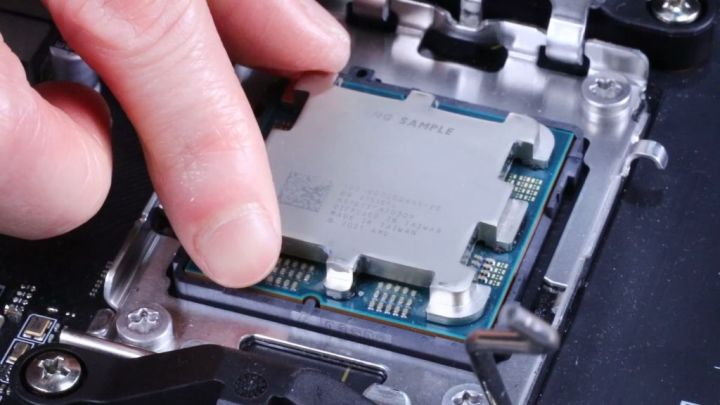With the launch of AMD Ryzen 7000 processors right around the corner, rumors are mounting as to the exact release date of the new CPUs. Today, an interesting fact has been brought to light that many have not considered before — AMD might not want to rush the release too much.
According to a new report, AMD may be taking things a little slow in order to not overshadow Ryzen 5000 with its successor all too soon. When can we expect to see the next-gen processors, and is delaying the launch really a good idea?

Although many rumors as to the release date of the upcoming AMD Ryzen 7000 processors have floated around, September, in particular, seems like the safest bet. It comes up in several different leaks, and today’s revelation only serves to prove it further, so it’s not exactly that sensational — but the reasoning behind the September release date is what makes this rumor interesting.
According to a report from DigiTimes, motherboard manufacturers are currently making new boards for the next-gen AM5 socket for Zen 4 processors. Sources related to those manufacturers are supporting the claim that AMD is getting ready to release the processors around the middle of September. Now comes the interesting tidbit: This decision might be a conscious choice made by AMD, and it’s allegedly not based on production times, at least not entirely.
As per DigiTimes’ anonymous sources, AMD chose September for the release of Ryzen 7000 in order to give Ryzen 5000 a little bit more time to shine. Upon the release of the next generation, the demand for current-gen Ryzen 5000 processors will naturally drop off for a while as most people will be trying to get their hands on the best CPUs currently available to them.
Before AMD (along with its customer base) moves on to the next generation of Zen processors, there are still plenty of current-gen CPUs in stock — so much so that they’re being referred to as an “excess.” This implies that AMD might have been ready to launch Zen 4 sooner, but chose to hold off until September to give the supply of Ryzen 5000 a proper chance to sell off.
Is it a good idea for AMD to delay Ryzen 7000?

This brings us to the question: If AMD is really waiting to launch Ryzen 7000 past the expected timeframe, is that a good choice? It’s hard to say with any certainty. However, it’s important to note that AMD is already a bit behind Intel as things stand now, seeing as Intel Alder Lake was released in 2021. The platform was highly successful, producing some of the best Intel processors we’ve seen in a while. It also introduced DDR5 RAM and PCIe Gen 5, although storage options for the latter are still limited, and DDR5 memory is still overpriced.
The fact that AMD didn’t manage to beat Intel to the punch with Alder Lake is clear, but it still kept busy throughout the year, releasing the Ryzen 7 5800X3D — arguably one of the greatest processors for gaming. However, given how long it’s been since a new generation of AMD processors graced the market, it seems crucial that Team Red should manage to beat Intel this year. This means that releasing Zen 4 before Intel Raptor Lake is rather important, as it would let impatient gamers focus their attention on AMD as opposed to marching straight to Intel if it were to hit the market first.
Luckily for AMD, Intel Raptor Lake might itself not make it to market by September — most rumors are pointing toward an October release. If that’s the case, then AMD just might have the cake and eat it, too — Ryzen 5000 will have its last hurrah, and Ryzen 7000 will still arrive before Intel’s next-gen CPUs are there to fight for the spotlight. We’ll just have to wait and see.



